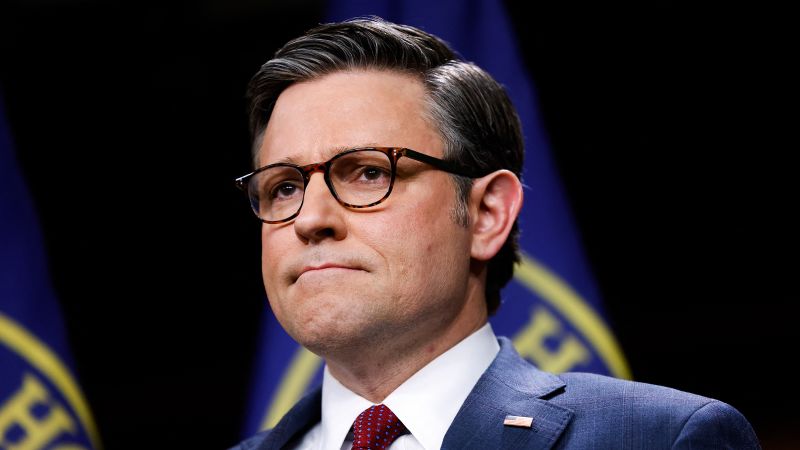House Democrats are grappling with the decision of whether to support Speaker Mike Johnson if an effort to oust him begins in the chamber. Some argue that voting against a motion to vacate could prevent chaos and protect the party from undermining support in the upcoming election, while others fear that supporting Johnson could alienate the party’s base. Democrats are divided on this issue, with political implications weighing heavily on the decision.
House Democratic Leader Hakeem Jeffries holds considerable influence in determining the fate of Speaker Johnson. Unlike previous instances, where Democrats were united against motions to vacate, the current situation has caused fractures within the caucus. Members are wary of escalating tensions during a tumultuous time following recent terror attacks, and the global political climate has added to the complexity of the decision-making process.
Many Democrats fear the potential consequences of allowing Johnson to be replaced by more extreme Republicans like Marjorie Taylor Greene and Thomas Massie. Some members, like Rep. Jared Moskowitz, have voiced concerns about the implications of supporting Johnson’s removal and potentially allowing individuals with starkly different policy visions to take over the House leadership.
Despite divisions within the Democratic caucus, some members have expressed a willingness to consider sparing Johnson under certain conditions. Rep. Sara Jacobs, for example, suggested that passing Ukraine funding legislation would be a prerequisite for any discussions about Johnson’s future. Speaker Johnson has worked on key bipartisan agreements despite differing policy stances from Democrats, which has garnered some support for him within the party.
The decision of whether to save Johnson could come sooner than expected, as Republican support for him is dwindling. If only a few Republicans vote to oust Johnson, Democrats may play a pivotal role in determining his fate. Republicans supporting Johnson could request a motion to table, prompting Democrats to decide whether to help save his position as Speaker.
The potential for another speaker fight raises concerns among Democrats about the stability of the institution and its ability to function effectively. Members caution against allowing political infighting to disrupt legislative processes and argue for prioritizing the needs of foreign allies and passing critical aid packages. Ultimately, the decision on Johnson’s fate lies in the hands of party leaders like Hakeem Jeffries, with considerations of political strategy and the party’s objectives playing a significant role in the decision-making process.













